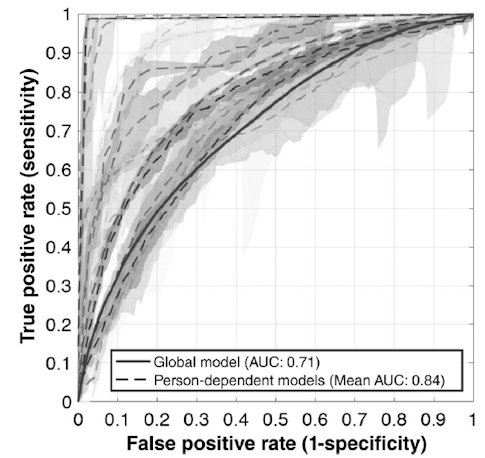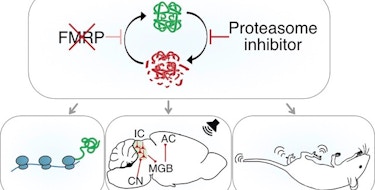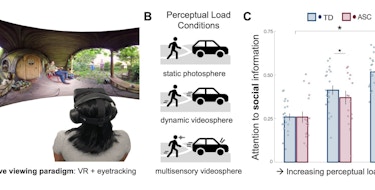
Aggression is one of the most challenging behaviors seen in young people with ASD, especially those who are the most severely affected. The unpredictable nature of this behavior makes it particularly difficult for caregivers to manage.
Now, SFARI Investigators Matthew Goodwin, Matthew Siegel and colleagues have developed a model based on data obtained from a wearable biosensor showing that aggression toward others can be predicted with a reasonable degree of accuracy.
In the new work — partly funded by a SFARI award to support the Autism Inpatient Collection, a cohort of individuals with severe forms of autism — the team collected cardiovascular, electrodermal and motion data from 20 minimally verbal youth with ASD who were wearing the E4 biosensor from Empatica during 69 independent observation sessions. With a person-dependent prediction model, they found that aggression could be predicted one minute before it occurs using three minutes of biosensor data, with an average accuracy of 84 percent.
The authors note that focus groups conducted with parents suggest that even one minute of warning may be sufficient to redirect the individuals, to provide support and to make the environment safer. Additional work may further improve on the accuracy of the classifier, which may hold substantial benefits for quality of life.
Reference(s)
Predicting aggression to others in youth with autism using a wearable biosensor.
Goodwin M., Mazefsky C.A., Ioannidis S., Erdogmus D., Siegel M.


